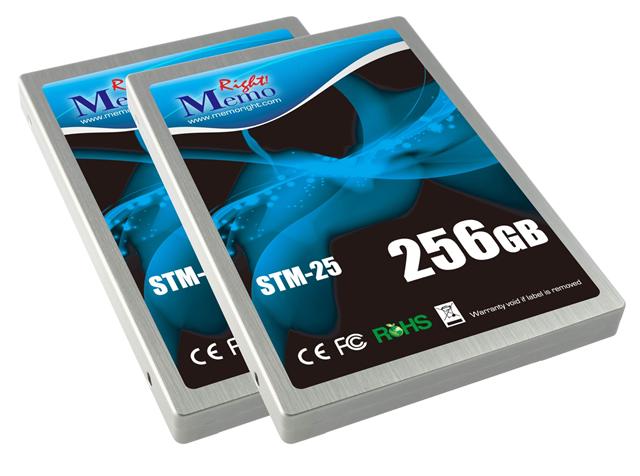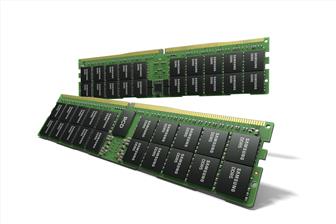
Memoright has launched its STM-25 SSD series with capacity of up to 256GB, targeting applications including storage systems, cloud computing, business-use servers, workstations and high-end PCs.
The new 2.5-inch SSD delivers a read speed of 240MB/s and write speed of 170MB/s in IOMeter Benchmark tests, and reaches 24,000/17,000 IOPS.
The STM-25 SSD boasts 64MB built-in DRAM cache and delivers superior durability, power savings and reliability.
STM-25 is supported by Memoright's Health Doctor, an information security mechanism commonly used in military-level ruggedized SSDs.

Samsung HKMG DDR5
Samsung Electronics has expanded its DDR5 DRAM memory portfolio with a 512GB DDR5 module...
Photo: Company

Nvidia GeForce RTX 30 series GPUs
Nvidia's GeForce RTX 30 series GPUs are powered by the company's Ampere architecture. The...
Photo: Company

Apple HomePod mini
Apple's HomePod mini is the newest addition to the HomePod family. At just 3.3 inches tall,...
Photo: Company

Apple 13-inch MacBook Pro with Magic Keyboard
Apple has updated the 13-inch MacBook Pro with the new Magic Keyboard for an improved typing...
Photo: Company

Apple iPad Pros
Apple's new iPad Pros comes with the latest A12Z Bionic chip, an ultra-wide camera, studio-quality...
Photo: Company
- Silicon photonics set for takeoff (Oct 30) - EE Times
- TikTok founder becomes China's richest man (Nov 1) - BBC News
- Nvidia to take Intel's spot on Dow Jones Industrial Average (Nov 1) - Reuters
- Huawei's latest AI processors were made by TSMC (Oct 22) - Bloomberg
- Arm to scrap Qualcomm chip design license in feud escalation (Oct 23) - Bloomberg
- Embedded World brings 3,500 visitors to 1st US outing (Oct 11) - EE Times
- Preparing electronics engineering students for industry (Oct 8) - EETimes Europe
- Former Apple hardware chief Dan Riccio is retiring (Oct 11) - Ars Technica
![]() Microsoft's custom chip sets new industry benchmark while deepening AI partnerships across sectors
Microsoft's custom chip sets new industry benchmark while deepening AI partnerships across sectorsAs Microsoft transitions from a software giant to a cloud leader, with its cloud business now accounting...
![]() Inside TSMC: Morris Chang's Journey
Inside TSMC: Morris Chang's JourneyTSMC founder Morris Chang's second autobiography volume unveils a tapestry of milestones, including his influential comeback, rekindled alliances with...

CSP in-house development of ASIC accelerators
Google TPUs will see a share of over 70% in the in-house developed cloud ASIC accelerator market in 2024; an all-optical network...

AI chip market outlook 2023-2028: Insights from demand and supply perspectives
The growing demand for AI computational power is accelerating advancements in hardware and chip technology, necessitating innovation...

Automotive CIS tech development, 2024
The popularization of autonomous driving is boosting demand for automotive CIS with LFM and HDR being mainstream development...






